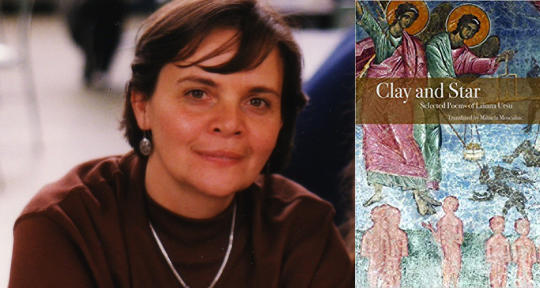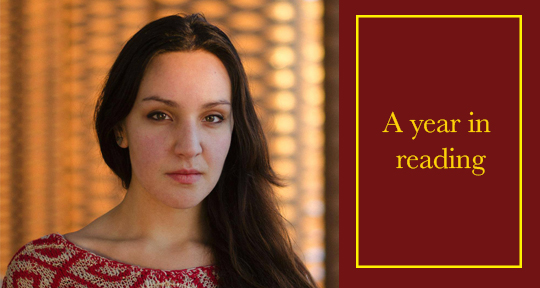This week, our intrepid team members report from around the globe as Poland honors one of the country’s greatest poets, UK independent publishers reckon with new tax regulations, and a Palestinian podcast kicks off with a special video presentation, which also serves as an introduction to some of the brightest lights in Arabic poetry. Dive in!
Julia Sherwood, Editor-at-Large, reporting from Poland
Long snubbed by Polish literary critics as popular literature, the satirical novel The Career of Nicodemus Dyzma (1932), about the accidental rise of an opportunistic swindler, by the political journalist Tadeusz Dołęga-Mostowicz (1898–1939) remained inaccessible to English-language readers until 2020, when Northwestern University Press brought it out in a translation by Ewa Małachowska-Pasek and Megan Thomas. Their commitment and excellent rendering of the book’s universality made the translator duo worthy recipients of the 2021 Found in Translation Award. Explaining the book’s importance and enduring relevance, Ursula Phillips notes in her #Riveting Review that its “resonance extends well beyond the Poland of 1932: in our age of misinformation, post-truth, fake news, the discrediting of expert knowledge and widespread conspiracy theories, it is not hard to recognise other Dyzmas.”
Modern Poetry in Translation has teamed up with the Polish Book Institute to mark the two hundredth birthday of Cyprian Kamil Norwid (1821–1883). Now recognized as one of Poland’s greatest poets, the visionary romantic spent most of his life in exile and died virtually unpublished, deaf and destitute, in Paris. Hoping to “ignite the gentle curiosity of the imagination of the viewer towards the legacy that this man left in writing and in art that was simply never validated in his lifetime,” animation supremos Brothers Quay have created Vade Mecum, a short visual tribute taking its title from Norwid’s poetry collection. On 21 June MPT released a special digital issue featuring Adam Czerniawski’s translation of Norwid’s last play, Pure Love at Sea-Side Bathing. Set by the French seaside, the play “anticipates Maurice Maetelinck’s Pelléas et Mélisande and Henry James’s late novels,” says Czerniawski, introducing this work by a “master of the implied, the half-said, the unsaid.” And the journal’s summer 2021 issue will present new commissions from poets Wayne Holloway Smith and Malika Booker, writing in response to Norwid. Back in Poland, as the Cyprian Norwid Prize celebrates its own twentieth birthday, Józef Hen, author of over thirty books, many film scripts and plays, as well as four TV series, has been named winner of the “Award for Lifetime Achievement”. Prizes in the remaining categories—literature, music, visual art and drama—will be announced in September.




